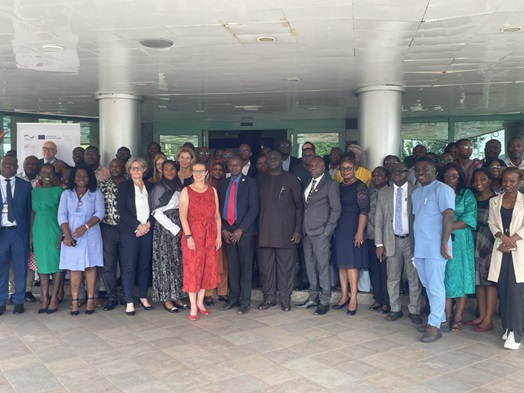The Swiss State Secretariat for Economic Affairs (SECO) has committed 4 million euros to support GIZ’s “Participation, Accountability and Integrity for a Resilient Democracy (PAIReD)” programme to improve Ghana’s local governance systems.
The PAIReD programme commissioned by the German Federal Ministry for Economic Cooperation and Development (BMZ), is co-financed by the European Union and implemented by GIZ jointly with the Ministry of Finance.
The four-year programme, October 2023 – September 2027, supports the capacity building of its partners to make the public revenue system and public expenditure management more transparent, fairer and effective.
Also, advise national institutions and partner districts, 60 of them, in developing data-based plans and inclusive planning processes to enhance service delivery and accountability at the local level.
Madam Astrid Kohl, Programme Director of PAIReD, said the partnership would make Ghana’s system of intergovernmental transfers and local public finances more efficient and transparent.
She said it would also improve the capacities of public accountability institutions at national and subnational levels to respond to citizens’ demand for accountability and transparency.
“We seek to make the expenditure management more citizen-oriented, data-based, gender-responsive and climate-oriented at the national and subnational level, as well curb corruption through enhanced digitalization and joint efforts by state institutions, civil society and the media,” she added.
Magdalena Wust, Head of Cooperation, Swiss Embassy, said they decided to seek partnership, realising the opportunities Ghana had in improving its local government systems to the benefit of its citizens at the local level.
She said by strengthening local governance, the districts would deliver much-needed services to Ghanaian citizens since they had direct access to them.
She added that the districts needed to be well-equipped and enhanced to deliver improved services to their communities and bring improvements to the standards of living of the citizenry.
Mr Divine Yao Ayidzoe, Director of Research Statistics and Information Management of the Ministry of Local Government and Decentralisation, said the social impact of decentralisation was evident in enhanced service delivery and community engagement in development projects.
He said with local authorities having more control over resources and decision-making processes, there would be an increase in community-driven development initiatives that would reflect the needs and aspirations of residents.
GNA





